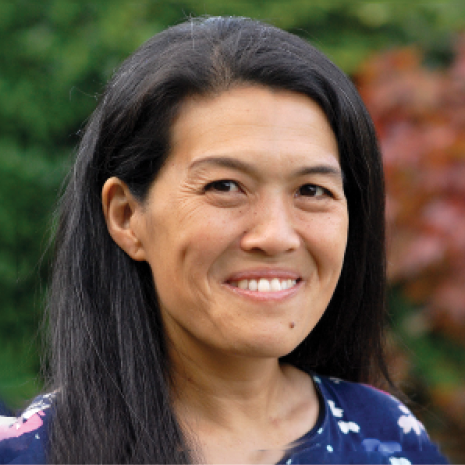
- This event has passed.
AI-Enhanced Efficacy: Assisting the Adults Helping Children

“We absolutely do not believe that AI will replace teachers. They can never be replaced. Machines will not love students. Teachers love students.”
Eirene Chen of Khan Academy offered this insight during the GLR Week session, AI-Enhanced Efficacy: Assisting the Adults Helping Children, moderated by Isabelle Hau of the Stanford Accelerator for Learning. Chen points to generative AI as a means for moving students from passive learners to more active ways of learning and acknowledges that, with ChatGPT’s launch at the end of 2022, there was an immediate fearful reaction from many across the education landscape. Many wondered if AI will be used to replace teachers. Chen encouraged a bolder approach where practitioners ask, “How can we harness these AI tools to help us realize our long-standing dreams for equity and closing opportunity gaps?” Our panelists pointed to a need for AI literacy education for students and for resources for vetting AI by families and educators, such as those that Common Sense Media are developing. Jim Steyer said about AI, “There’s really big opportunity, but I also think there are huge downsides…I think it will be misinformation, disinformation on steroids. So, I think the big losers on that are kids.”
To assure that AI has the positive impact on learning and equity that these panelists envision, Pati Ruiz, Ed.D., of Digital Promise shared that the use of AI in education must ensure “these AI systems and tools always keep humans at the center of the decision-making process.” With humans at the center, AI becomes a tool for good and expanding capacity of educators and families. Vicki Phillips, Ed.D., of The National Center on Education and the Economy took this a step further and pointed to how education may shift in this new technological era. “Education should prioritize the development of skills that are uniquely human by preparing individuals to adapt and innovate and collaborate effectively.” This approach will prepare students for a future where AI is part of everything that we do.
The second part of this webinar focused on families and their engagement with current AI products. “As we think about parents there are two characteristics that really stand out,” for Tom Sayer of Ello. “First of all, parents want to do what’s best for their child…and the second is we’re really exhausted.” Christie Chu of Koalluh added that “I think the barriers to adoption largely revolve around access and digital fatigue.” For Nick Haber, Ph.D., of Stanford Graduate School of Education this is exactly why AI is a beneficial resource for families. It builds their capacity, augmenting the learning or coaching experience when they have limited time to support their children’s learning. “It’s a multiplying effect, allowing these learning experiences to be had more often by the child,” according to Haber.
Panel










